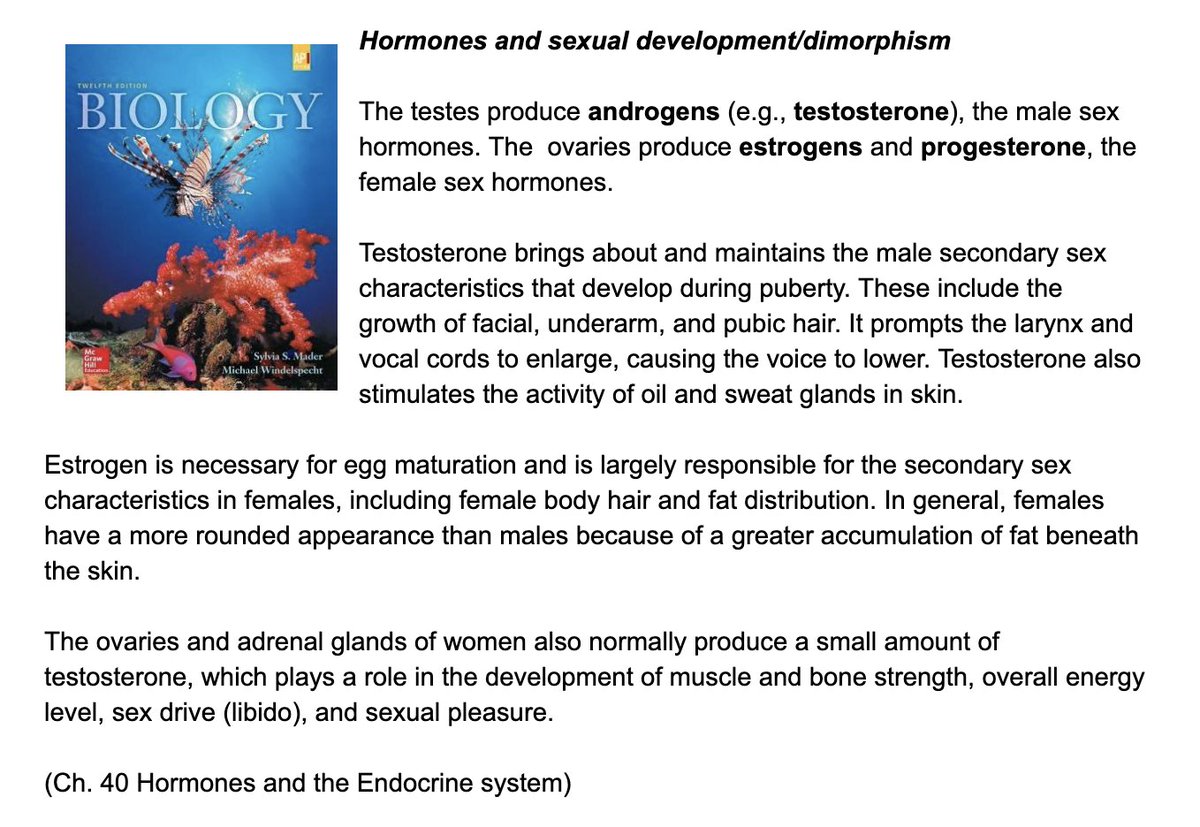Today in a @projectbioversify training, we were tasked with evaluating an intro of hormones and sexual dimorphism in an intro bio textbook. Here is what we found, in terms of problems and solutions.
The passage only discusses hormones in humans. It would be great to state up front that hormones act in diverse ways in organisms, but that we are going to focus on humans here.
It starts by portraying testosterone as a male hormone and estrogen and progesterone as female hormones. Most people make all three, regardless of their sex.
The first mentioned function of testosterone in males is secondary sex characteristics, whereas estrogen stimulates egg production in females. It leaves out T’s role in sperm production in males, and emphasis implies primary function of E is eggs (= women are egg factories!).
It uses the terms men/women and male/female, which is problematic because these terms imply binary sex, conflate sex and gender, ignore intersex, non-binary, genderqueer, people with genetic conditions like androgen insensitivity syndrome, and more.
It implies that hormone level is all that matters for these phenotypes, and ignores tremendous individual variation, importance of receptors, binding globulins, and other components of signaling.
It implies sex drive, sexual pleasure, strength, and high energy levels are male characteristics & females only have them to a lesser extent.
If this was your textbook, you should do a big disclaimer before students read it, discussing how this is an overly simplified example from humans, even asking students to critique the passage!
What else??
[I should also note that as a textbook author myself, I understand intimately the issue with not having much space to devote to specific topics...]

 Read on Twitter
Read on Twitter


